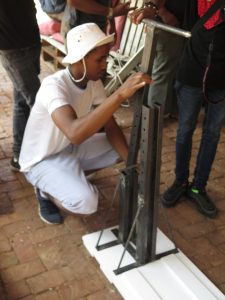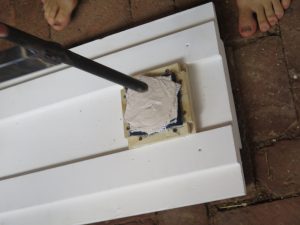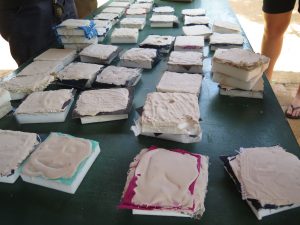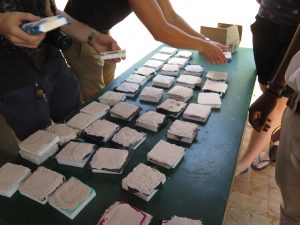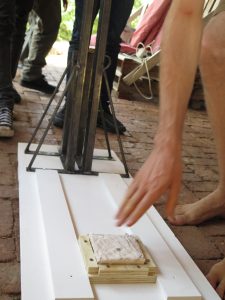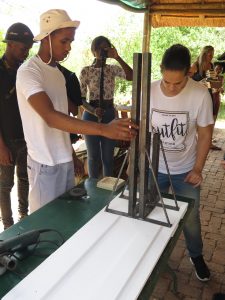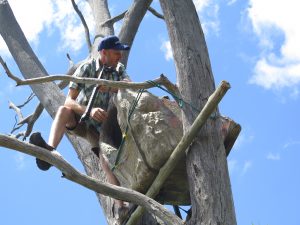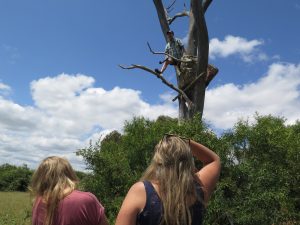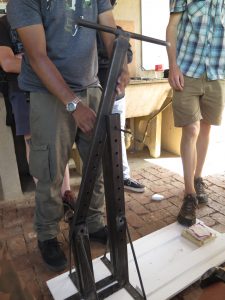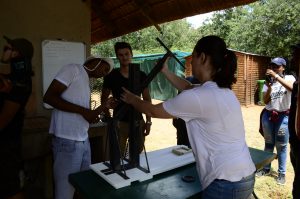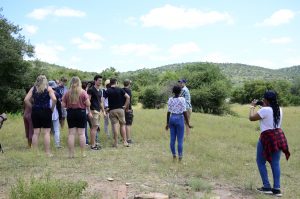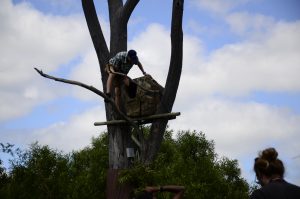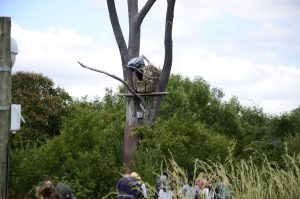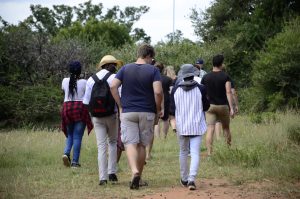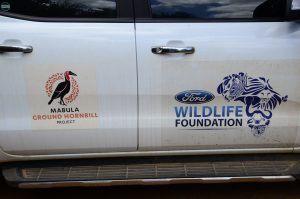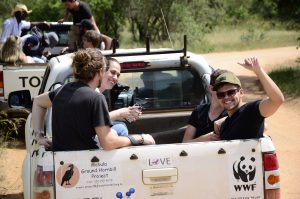I learnt more about the bird,and the precautions needed for making their nest to help prevent them from getting harmed or going extinct. –Cinderella Mthembo | Such projects broaden your perspective and understanding of why such conservation projects exist in the first place. -Sihle Gqadu | Our lectures always talked about this project , and I always seemed to just hear about it. But this field trip opened by mind and triggered my interest. -Lucindy Naude |
I learned that we should not just preserve the environment for ourselves but with the wildlife we share it with. -Denzill Bothma The fact that we were on-suite when we tested our materials. Made it very enjoyable. Seeing the hornbill in person also gave a measure of context, by showing us what we are trying to save. -Henk Blankestijn | Learning that testing is really important and therefore continuously working on a project will always be there. -Lynnette Booysen This type of project is important because Industrial or product design should not only be centered around people and what we want, but it should be used to fix that what we are destroying. We owe it to nature and the animals -Marliza Visser | It’s all you could ask for in a school trip. Waking up early is not something people really enjoy, but the excitement was so real that time was not an issue. We were welcomed and hosted so beautifully that we are so grateful for such an amazing experience. We ate, swam, went on game drive and it was all so fun. We hope to go back there soon. Thanks to our lecturers for being involved and including us in such a projects that humble us and reconnects us to nature. -Onkgopotse Mothibe |
Students Test Materials for a Artificial Nest to Help Save Endangered Birds
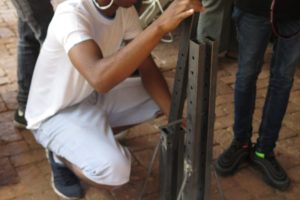
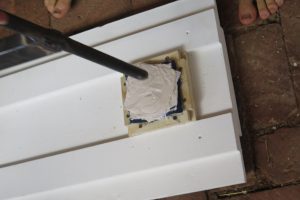
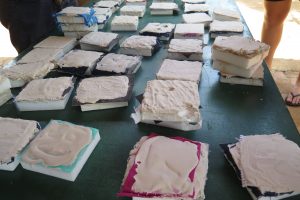
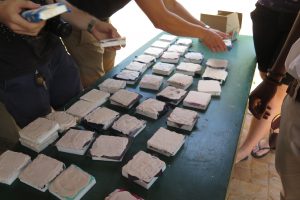
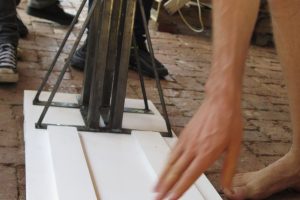
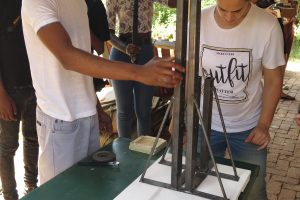
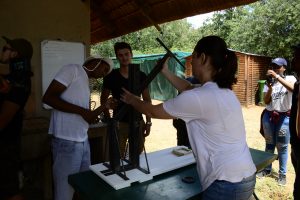
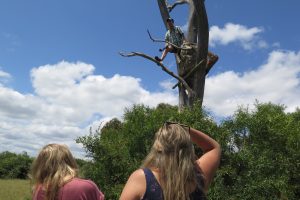
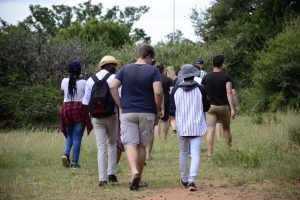
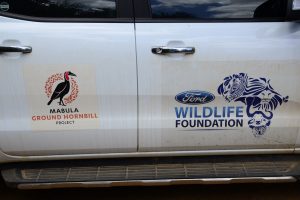
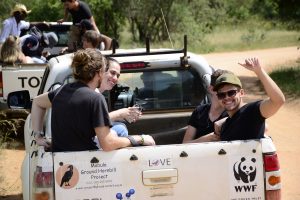
The Mabula Ground Hornbill project is conservation organisation which aims to reduce the decline of the endangered Southern Ground Hornbill bird. A partnership between the TUT Industrial Design program and the Mabula Ground Hornbill Project began in 2017 with the development of a artificial nest for the Southern Ground Hornbill. This nest has undergone a series of iterations and prototypes are being tested.
The nest is a composite nest made from structural foam and a skin of M1 (http://www.masterworks.co.za/) and natural fibres. During testing it was found that the natural fibres were not strong enough when subjected to the pecking of the birds. Therefore the birds were damaging the prototypes. In order to improve the integrity of the nests, a material testing exercise was undertaken. Second year Industrial Design students were asked to conceptualise a peck-simulation device which could deliver a consistent peck.
The students were then tasked with developing samples using M1 and various fabrics that they could source. These samples were left to fully harden before the samples and pecking-device was taken through to the Mabula Ground Hornbill Project.
During the visit to the Mabula Ground Hornbill Project students got to track down and see a Ground Hornbill Bird. We then went through to the research centre where the existing nest (for the Mabula family unit) is located. Thereafter testing of the samples began. The exact force with which the southern Ground Hornbills peck is unknown (we are investigating measuring it), so we consulted with the conservationists and let the device “peck” a few samples to visually gauge the potential force. A multilayer-composite with two different fabric types and M1 proved to be the better solution, with only minor damage inflicted by the “peck”.
The pecking-device is also going to be “beautified” and made to look more like a southern ground hornbill. It will then be donated to the Mabula Ground Hornbill project for them to use as part of their education program. They will be demonstrating the “pecking” force to school children.
The next phase of the project is to develop a single nest using the new multi-layered fabric and M1 composite. This nest will be tested by letting captive birds occupy and probably peck it. Assuming this nest is successful additional nests will be developed and distributed to various reserves across Southern Africa with the hope of increasing the chance of breeding for these birds.
A special thanks to AMT composites for the sponsorship of the M1 material

